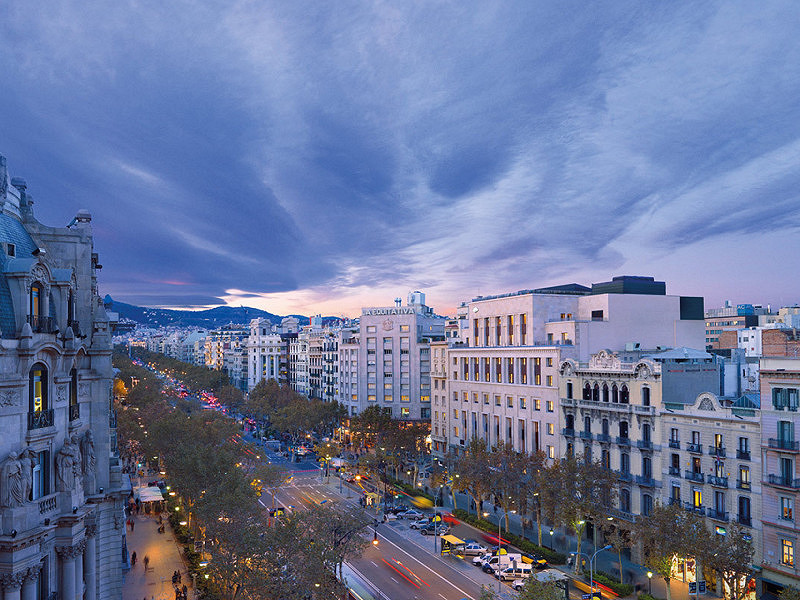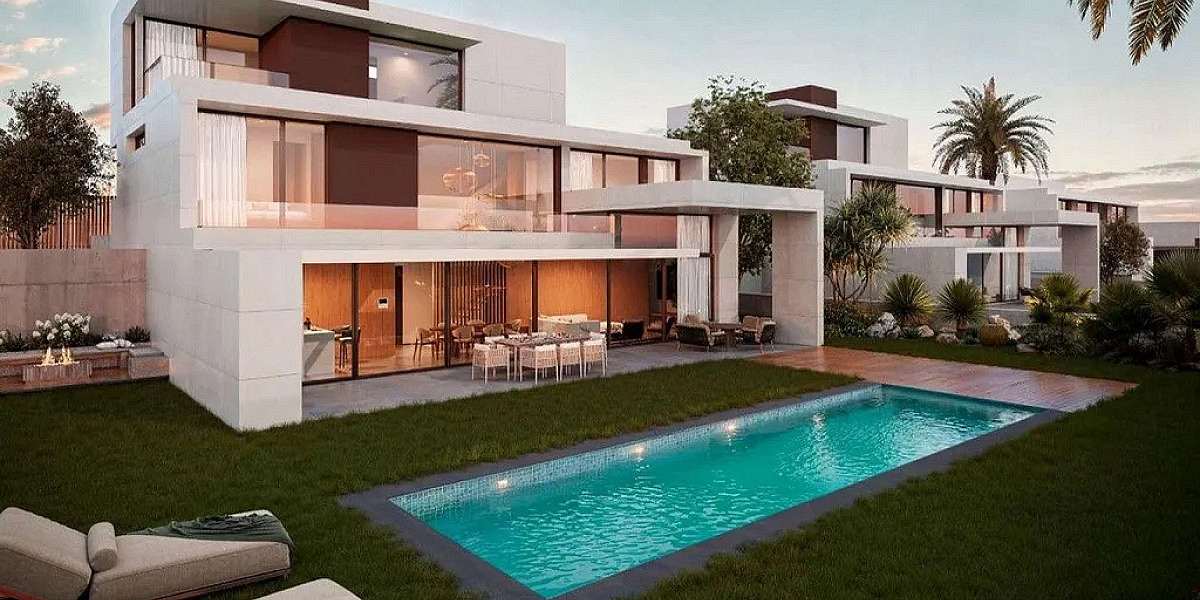
Buying real estate in Spain is more than fulfilling a dream of living by the sea — it's a serious legal and financial process, especially if you're not a permanent resident. How do you choose the right area? What taxes and additional costs should you consider? Is it possible to get a mortgage without residency? This comprehensive guide answers all those questions, with expert commentary by Ruslan Gavrilov, CEO of GG Group Barcelona.
Where to Start: Where to Buy and Where Not to Risk
If you're considering buying a house or apartment in Spain, begin with your goal: do you plan to relocate, rent out, or invest for capital growth?
Once you’ve set your goal, the next step is choosing the region. Spain offers much more than just Barcelona or Madrid. There are countless coastal and inland areas, each with its own features and price levels.
Still, Barcelona and its surroundings remain among the most popular locations for foreigners, thanks to the combination of urban infrastructure, coastal access, and strong transport connections. This region offers a wide range of properties, so understanding which districts align with your objectives is crucial.
Popular areas in and around Barcelona:
- Barcelona City Centre (Eixample, Gótico, Born) – Great for short-term rentals. Note: tourist apartment licenses (HUT) will no longer be renewed in Barcelona starting in 2028. These neighborhoods offer unique architecture, vibrant culture, and close proximity to landmarks.
- Pedralbes, Sarria, Sant Cugat – Prestigious family zones with international schools and parks. Popular among expats with children.
- Gava Mar, Castelldefels – Coastal living with city access. Ideal for permanent residence.
- Poblenou, Sant Andreu – Up-and-coming neighborhoods with new developments and high investment potential.
Coastal regions also worth considering:
- Costa Brava – A rugged coastline in northeast Catalonia. Villas, privacy, and natural beauty. Ideal for holidays or permanent living. Popular towns: Lloret de Mar, Palafrugell, Blanes, Platja d’Aro, Tamariu, Begur.
- Costa del Maresme – Between Barcelona and Costa Brava. Comfort and excellent city access. Great for year-round living: El Masnou, Mataró, Alella, Sant Andreu de Llavaneres, Premia de Mar, Calella.
- Costa Dorada – The southern coast offers mild weather, sandy beaches, and more affordable prices. Popular towns include Cambrils, Tarragona, Coma-Ruga, Cunit, Calafell.
Avoid focusing solely on price. Some districts — like La Mina in Sant Adria de Besos or Zona Franca — may appear attractive but lack in safety, infrastructure, and overall quality. These issues exist in every region, so it’s crucial to research the neighborhood, not just rely on low prices.
"We always recommend analyzing the neighborhood — infrastructure, development potential, and social context. That’s much more important than the asking price," says Ruslan Gavrilov, CEO of GG Group Barcelona.
Choosing the Right Real Estate Agency
Buying real estate in Spain involves multiple professionals: agents, lawyers, notaries, tax advisors, and bank managers. For foreigners, this process is more complex and requires full-service guidance.
Why foreigners need a different approach:
International transactions often require:
- Tailored property selection, including location analysis and rental return modeling for investment purchases;
- Legal due diligence of the property and seller;
- Tax and structuring consultation (foreign transactions are rarely standard);
- End-to-end service: document translation, payment assistance, account opening, mortgage help;
- Immigration assistance (for relocations);
- Post-purchase services — furniture, utilities, rental management.
Preferably, all services should be available in English
Why not all agencies are suitable:
Most agencies in Spain focus on the local market and use a basic “show and sell” model, which lacks international transaction support. This requires consulting experience and a larger team.
What Does It Cost?
- Barcelona: Agencies typically charge 3–5% commission (paid by the seller);
- Coastal regions: Up to 6%;
- Commercial deals: Buyer often pays the commission;
- Private searches through closed databases may carry additional fees.
How to Choose a Reliable Agency:
Choose a firm with:
- At least 8–10 employees;
- Office space of 100 m² or more;
- A professional website and clear contact details;
- Licensed agents with API registration numbers;
- A track record of 10+ years.
"Personally, I don’t recommend working with freelancers from social media, even if they have an API license. They’re often solo agents who can’t provide full support, especially with property management. It’s safer to work with an established agency with a professional site, licensed staff, and proven experience," — Ruslan Gavrilov.
Taxes and Additional Expenses
Expect to pay an additional 12–15% on top of the property price. Main costs:
New Builds:
- VAT (IVA): 10%
- Stamp duty (AJD): 1.5%
Resale Properties:
- Property Transfer Tax (ITP): 10–13% in Catalonia:
- Up to €600,000 — 10%
- €600,000 to €900,000 — 11%
- €900,000 to €1.5M — 12%
- Over €1.5M — 13%
Plots sold by legal entities:
- VAT: 21%
- AJD: 1.5%
Other Costs:
- Lawyer: ~1%
- Notary and registration: 1–2%
- Bank transfers, translation, NIE application: from €200
"As of June 2025, Catalonia has raised ITP rates, especially for deals over €600K and for owners with 5+ properties — up to 20%" — Ruslan Gavrilov.
Legal Support: Only Work with Professionals
A good lawyer is essential. Our team includes specialized lawyers and tax experts experienced in international property deals in Spain.
We never outsource legal matters or proceed without full legal support — that’s our principle.
Services include:
- Due diligence on the property and seller;
- Analysis of debts, liens, mortgages, and technical restrictions;
- Drafting the reservation contract (Contrato de Arras);
- Assistance in obtaining NIE (Foreigner Identification Number);
- Opening a Spanish bank account;
- Guidance at the notary and property registry.
We also consult on deal structuring and taxes to help optimize your costs.
Ongoing Costs for Owners
- Annual Property Tax (IBI): 0.4–1.1% of cadastral value;
- Utilities: ~€150/month for flats, ~€300/month for villas;
- Community fees (if applicable): €50 to €1000/month;
- Insurance, repairs, cleaning, rental management — variable.
Can Foreigners Get a Mortgage?
Yes, banks in Spain offer mortgages to non-residents:
- Down payment: 30–50%
- Term: up to 25 years
- Interest rate: from 2.5% annually
- Documents: NIE, tax return, income proof, Spanish bank account
"One of our foreign clients with a residency permit has just recently secured a mortgage for a villa on the Costa Brava — it’s absolutely possible with the right guidance and legal support." — Ruslan Gavrilov
Commercial Property: Passive Income Option
Looking for rental income? Consider:
- Residential buildings with existing tenants;
- Commercial spaces — shops, offices, restaurants;
- Redevelopment and resale projects;
- Hotels, guesthouses, income-generating buildings.
GG Real Estate can source assets with 4–6% annual yield and build a financial model based on your investor profile.
Building a House from Scratch
Can’t find the perfect home? Build it.
GG Real Estate offers full “plot-to-key” services under your supervision:
- Land selection and legal review;
- Architectural design with our architect;
- Permit acquisition;
- Construction management with technical oversight;
- Interior design;
- Furnishing and landscaping.
Our team includes architects, engineers, designers, project managers, and material specialists. We also offer a showroom with finishes, furniture, and fixtures from Spain and Italy.
You’ll see your future home in advance and know your budget upfront. Transparent budgeting, regular updates, and Russian-language support included.
Summary: Why Families and Investors Choose Spain
Spain consistently ranks among Europe’s most attractive countries for real estate investment, thanks to its mix of comfort, legal security, and growth potential:
- Transparent legal system — secure ownership registration and rights protection;
- Stable currency — euro-based savings and payments;
- Excellent climate — mild winters, warm summers, 300+ sunny days/year;
- Quality infrastructure — transport, healthcare, public amenities;
- Education and healthcare — top clinics and international schools;
- Lifestyle and gastronomy — local cuisine, markets, leisure, and social culture;
- Sports and wellness — ideal for active living: from yoga and tennis to golf and football;
- High rental demand — from tourists and long-term renters;
- Capital appreciation — especially in emerging regions outside major cities;
- Mortgages available without residency.
Investing in Spanish real estate gives you a liquid asset and access to a safe, stable, high-quality environment for living, vacationing, or earning income.
Want to Learn More?
👉 Contact us to access our private database of residential and commercial properties in Spain. We’ll match a solution to your profile — for life, leisure, investment, or income.
GG Real Estate Barcelona — your trusted property expert in Spain.



